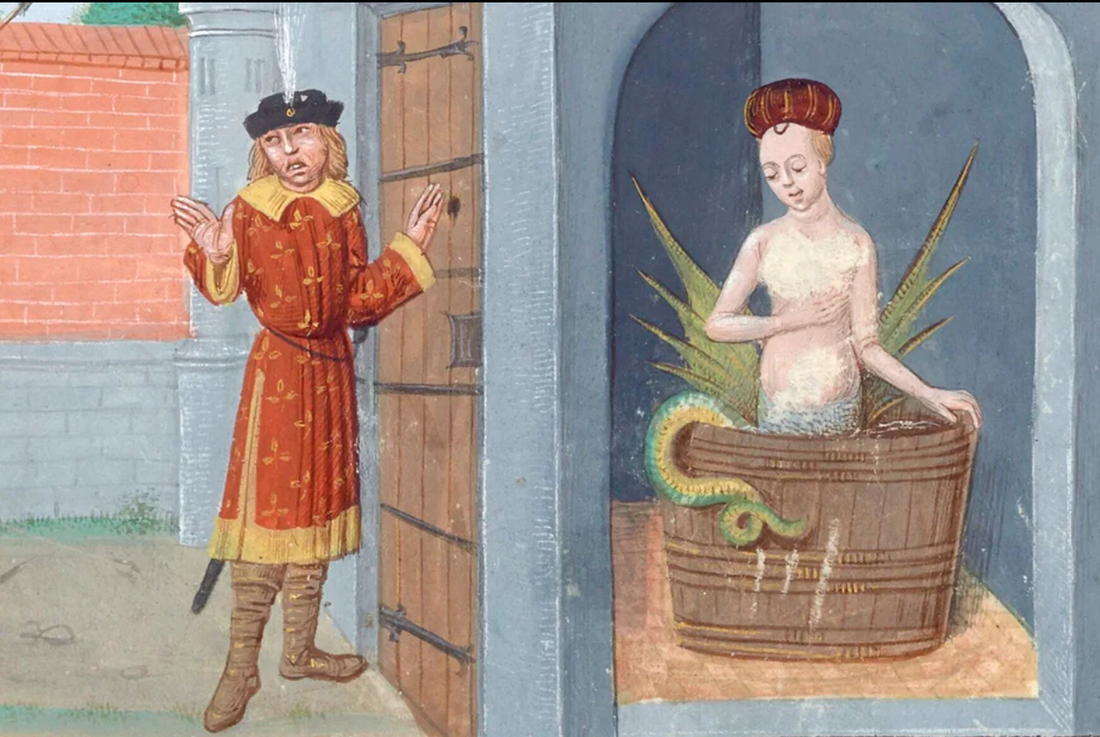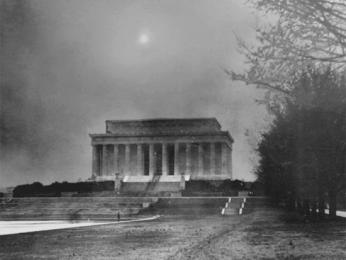|
It turns out—contrary to common misunderstandings—that medieval Europeans kept themselves quite clean. Not only that, but they utilized industrial waste heat, a practice that—in the digital age—we seem to only just now be rediscovering.
“Ordinary people in medieval cities bathed regularly in public bathhouses. These were often built close to bakeries, to share heat produced by the ovens.” Source. This basic waste heat reuse model has been (unknowingly) replicated at Iceland's Blue Lagoon, for instance. Read more about utilizing heat waste here. This is just one of many archaic innovations that may help us to live more sustainably. Another inspiring one is bâdgir or wind-catchers from Ancient Persia (along with “an underground refrigeration structure called yakhchāl, an underground irrigation system called qanats”). Learn more about this here.
0 Comments
Is this finally the climate change equivalent of the dust bowl? Our "Black Sunday"? In 1935, after denial and inaction by D.C. legislators, a plume of dust from Oklahoma darkened the skies--landing directly on D.C.--finally making the issue inescapable.
I have a glimmer of hope, but also realize that a significant portion of our political landscape is hopelessly out of touch with reality (I'm talking to you, [most] Republicans and Joe Manchin) to the point of not only denying ample scientific evidence, but even their own senses. "[fire historian Stephen] Pyne sees a small glimmer of hope: Just like the day in 2020 when San Francisco turned orange, this dramatic smoke event might help show the urgency of fighting climate change. “These large smoke palls may have the same motivating effect as the Dust Bowl squalls in the '30s,” says Pyne. “That was a remote environmental issue in the middle of the country where hardly anybody lived. And now it's at the steps of the Capitol.”" (from here) |
Chris Dunn, PhD
Researcher, writer, explorer*, photographer, thinker. Wrestling with nature, culture, technology. Archives
July 2024
Categories
All
*When I use the term "exploration", I mean it in a personal sense (discovery for myself, or at a unique moment in time [everywhere after all--even crowded cities--endlessly await rediscovery--by new eyes and in new moments]), not in an absolute sense. With few exceptions (notably Antarctica), almost everywhere on earth has had other people around for a long time (though to varying degrees - high mountain tops or places like the interior of the Greenland Ice Sheet for instance were far less visited and populated, and undoubtedly at least some pockets of the earth were never visited or populated). It is an enlightening experience though when on an isolated ridge in what feels like the middle of nowhere to wonder if anyone has set foot there but never knowing for sure. What is significant is that the landscape itself is left in such a condition that it isn't evident. Some places ought to be kept that way.
|


 RSS Feed
RSS Feed